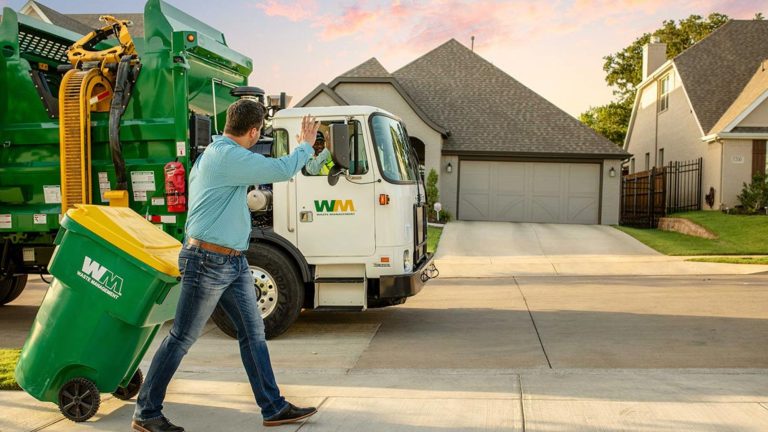Local communities has a crucial role in managing waste and promoting environmental sustainability. By adopting a holistic approach that includes waste reduction, recycling, composting, and education, communities can significantly reduce their environmental impact. Skip hire local plays a crucial role by providing convenient waste disposal options and aiding in local waste management efforts.
Encouraging residents to embrace the principles of reduce, reuse, and recycle can lead to a significant decrease in the amount of waste sent to landfills. Additionally, community clean-up events and partnerships with local businesses and organisations can further enhance waste management efforts. Through these collective actions, communities can create a cleaner & healthier environment for current and coming generations.
Increased Recycling:
Local communities can significantly contribute to waste management by increasing recycling efforts. Encouraging residents to separate recyclable materials such as paper, plastics, glass, and metal from their regular waste stream is key. Providing accessible recycling facilities and education on what can be recycled enhances participation. Community-wide campaigns highlighting the environmental benefits of recycling and the importance of proper disposal of waste can boost engagement. Collaborating with local businesses to promote recycling and using recycled materials can further reduce household waste. By working together to prioritise recycling, communities can significantly reduce landfill waste and promote a more sustainable future.
Biological Treatment:
Biological treatment is a sustainable approach local communities can adopt to manage waste effectively. Through composting, organic waste like food scraps and yard trimmings can be turned into nutrient-rich soil, reducing the amount of waste sent to landfills. This process not only helps in waste reduction but also promotes environmental conservation by minimising greenhouse gas emissions from decomposing organic matter. Community-led composting initiatives can engage residents in a meaningful way, educating them about the benefits of organic waste recycling and encouraging sustainable practices. By embracing biological treatment, communities can take a significant step towards achieving a cleaner, greener future.
Embracing Reuse Strategy:
Local communities can significantly contribute to waste management by embracing reuse as a fundamental principle. Encouraging residents to reuse items, such as shopping bags, containers, and household goods, can greatly reduce the amount of waste generated. Community-run initiatives, like swap meets or online exchange platforms, can facilitate the reuse of items that would otherwise be discarded. Educating residents about the benefits of reuse and providing resources for finding reusable alternatives can foster a culture of sustainability. By promoting reuse, local communities can minimise waste, conserve resources, and create a more environmentally conscious society.
Composting Organic Waste:
Composting organic waste is a valuable way for local communities to contribute to waste management. By composting food scraps, yard waste, and other organic materials, communities can reduce the amount of waste sent to landfills, which helps to reduce greenhouse gas emissions and preserve landfill space. Composting also produces nutrient-rich soil that can be used to improve soil health and support local gardening and landscaping efforts. Composting can also foster a sense of responsibility and stewardship within communities by educating them about waste reduction and environmental sustainability.
Public Awareness and Education:
Public awareness and education are vital ways in which local communities can contribute to waste management. By informing residents about the importance of reducing, reusing, and recycling waste, communities can inspire individuals to make more sustainable choices in their daily lives. It is imperative to organize educational programs, workshops, and campaigns to create awareness about the environmental impact of waste and the benefits of proper waste management practices. When individuals have a thorough understanding of the consequences of their actions, it significantly increases the likelihood of their participation in recycling programs, composting, and other waste reduction initiatives.

It is imperative to organize educational programs, workshops, and campaigns to create awareness about the environmental impact of waste and the benefits of proper waste management practices. When individuals have a thorough understanding of the consequences of their actions. It significantly increases the likelihood of their participation in recycling programs, composting, and other waste reduction initiatives. Public education empowers individuals to take responsibility for their waste. And contribute to a cleaner, healthier environment for all.
Conclusion – Waste Management:
Local communities play a crucial role in waste management through various actions. By adopting the principles of reduce, reuse, and recycle, residents can minimise waste production. Encouraging composting of organic waste further reduces the burden on landfills while creating valuable soil enrichments. Educational programs and community clean-up events raise awareness and foster a sense of responsibility. Providing accessible waste collection services and supporting sustainable practices contribute to overall waste reduction efforts. Through partnerships and policy advocacy. Communities can work together to create a cleaner, more sustainable environment for all.



1 Comment
Pingback: Impacts of Household Waste on Environmental Wellness